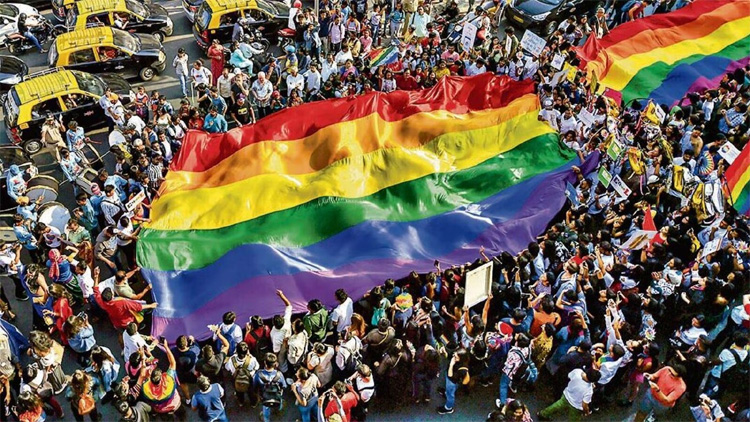Same-sex marriage hearing in Supreme Court: Ten things said in court on Day 5
The Supreme Court on Wednesday heard Day 5 of arguments over multiple petitions demanding marriage equality – the right of non-heterosexual couples to be wed and given the same rights as heterosexual unions.
So far, the court has head from the petitioners, who argued in favour of marriage equality citing various issues – from the importance of family to the right to equality.
This afternoon the court began hearing the views of the government – which last week sought to dismiss the petitioners’ demands as an ‘urban, elitist’ concept.
Here are the top ten things said in court today:
‘Elite argument can be set aside. Matter of prejudice. Does not determine how we rule on a constitutional issue’ – Chief Justice DY Chandrachud
‘LGBTQ couples will come to courts with claims, as these issues (pension, other benefits and obligations that flow from marriage) arise, just as heterosexual couples have, from the time codification of matrimonial laws began. We are no different, and we ask for the right to not be different’ – Advocate Arundhati Katju for petitioners.
‘Your Lordships should not presume any difficulty which arises for LGBTQ couples. Union says such couples would play havoc with personal laws. But we are part of our community and our society’ – Advocate Nundy for petitioners.
‘Let us be blessed just as heterosexual couples are…Not elite at all. So many people have called me…from Hissar, Chhattisgarh, Surat…Let the union bless us just as they do any other couple’ – Advocate Nundy for petitioners.
‘Children, orphans… have right to have a family. Exclusion of same gender couples and transgender persons defeats very purpose of adoption, which is to provide a stable, loving family. Is it in the best interest of the child to not have a relationship with their second parent? Petitioners are part of historically oppressed minority… deserve as much dignity & protection as opposite sex couple’ – Advocate Amritananda Chakravorty for petitioners.
‘Right to marry can’t mean compelling the State to create a new definition of marriage. Parliament can do but it’s not an absolute right. My appeal is to rather than taking this any further, this is a subject that should be left to the choice of parliament’ – Solicitor General Tushar Mehta for Center.
‘There is no absolute right to marry. Law prescribes when to marry by prescribing age. Law prescribes who not to marry, how to separate is also legislatively regulated’ – Solicitor General Tushar Mehta for Center.
‘Even the prayers of the petitioners are extremely vague. Societal acceptance is needed for recognition of a union and this has to be through the parliament. and if it is done by the court then it is detrimental to the LGBTQI since you are forcing something against the will of the people. We cannot forget the historical background which led to the institution of marriage’ – Solicitor General Tushar Mehta for Center.
‘Parliament was aware of lesbian and gay people [while constituting Special Marriage Act]. Select committee in fact used the word parties instead of ‘man’ & ‘woman’. After heated debate, amendment was brought to introduce different ages for men & women’ – Solicitor General Tushar Mehta for Center.
‘Special Marriage Act was intended to be religion-neutral, idea was to create a forum for people to marry outside their faith’ – CJI DY Chandrachud.


Comments are closed.